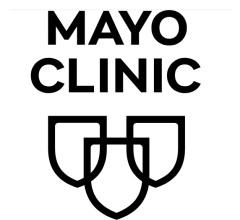
Image courtesy of Ultromics
January 15, 2024 — Ultromics, a patient outcomes-focused AI-driven health technology company with roots at the University of Oxford, UK, has entered into an agreement with Pfizer to support the validation and FDA clearance of its AI-based technology for the detection of cardiac amyloidosis.
Under the partnership with Pfizer, Ultromics will research and pursue FDA clearance for its EchoGo Amyloidosis algorithm that already has Breakthrough Device Designation as a medical device for the detection of cardiac amyloidosis. The algorithm uses deep learning to analyse routine ultrasound scans of the heart (echocardiograms) to detect disease that often goes undetected during standard assessments.
"Echocardiography, while fundamental for the early detection of many heart conditions, is hindered by subjectivity and the demand for scarce expertise in the accurate identification of cardiac amyloidosis," commented Prof. Sanjiv J. Shah, MD, the Director of Research for the Bluhm Cardiovascular Institute and Director, Center for Deep Phenotyping and Precision Medicine in the Institute for Augmented Intelligence in Medicine at Northwestern University Feinberg School of Medicine.
"AI can help detect cardiac amyloidosis early through routine ultrasound scans of the heart, which is vitally important because current treatments for cardiac amyloidosis work best when implemented early in the course of disease. AI-augmented detection of cardiac amyloidosis may be especially useful in clinical facilities lacking the time and resources needed for comprehensive assessment," he added.
Cardiac amyloidosis is a heterogeneous disease that results from the accumulation of abnormal proteins within the heart, impairing its ability to pump blood. Over time, the build-up of these proteins causes the heart muscle to stiffen, eventually leading to heart failure, which can have dire outcomes if not found early.1,2
"AI can notify clinicians of disease presence and offer an early warning," stated Dr. Ross Upton, CEO and Founder of Ultromics. "Early identification and treatment of cardiac amyloidosis is critical to help slow disease progression. If cleared, EchoGo Amyloidosis will help physicians identify early signs of this debilitating disease, with the goal of facilitating earlier diagnosis and access to potentially life-saving treatment."
Ultromics' expertise has been demonstrated through its algorithms for improving the detection of Heart Failure, which previously received FDA Breakthrough Device Designation before being cleared by the FDA in November 2022. FDA Breakthrough Device Designation recognizes novel innovations that demonstrate the potential to provide more effective treatment or diagnosis for life-threatening or irreversibly debilitating diseases.
This builds on the history of Echo diagnostic algorithms developed by Ultromics including the first ever AI diagnostic, EchoGo® Pro for the detection of coronary artery disease, which was FDA cleared in 2021 and is undergoing a prospective clinical trial in the UK.
In December 2023, Ultromics proudly revealed it had been chosen to participate in the FDA's Total Product Life Cycle Advisory Program (TAP) Pilot, an exclusive cohort comprising of only 15 breakthrough cardiovascular devices. The strategic initiative is geared towards accelerating development and enhancing the accessibility of high-quality, safe, effective, and innovative medical devices.
For more information: https://www.ultromics.com/
References:
1 Maurer M, Elliott P, Comenzo R, et al. Addressing common questions encountered in the diagnosis and management of cardiac amyloidosis. Circulation. 2017. 135(14):1357-1377.
2Siddiqi O., Ruberg F. 2018. Cardiac Amyloidosis: An Update on Pathophysiology, Diagnosis, and Treatment. Trends Cardiovasc Med. DOI:10.1016/j.tcm.2017.07.004
EchoGo Amyloidosis pending 510(k) clearance


 January 10, 2026
January 10, 2026 









